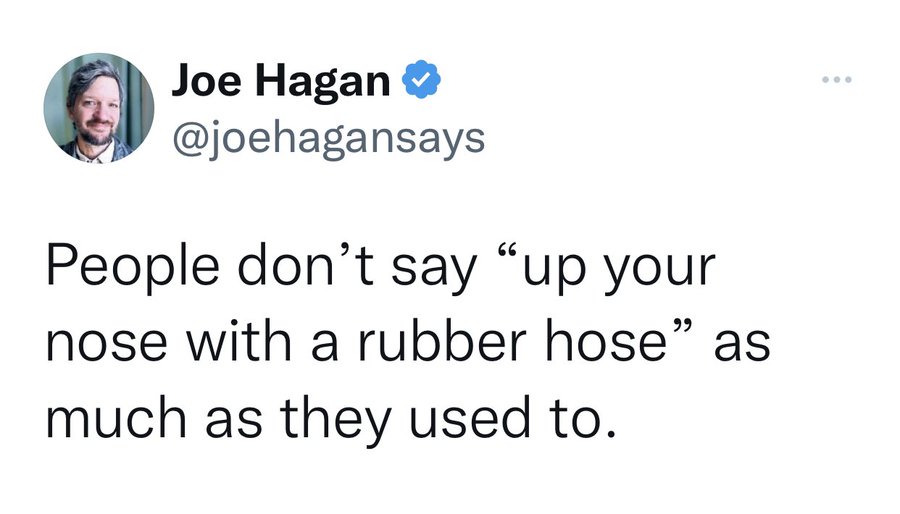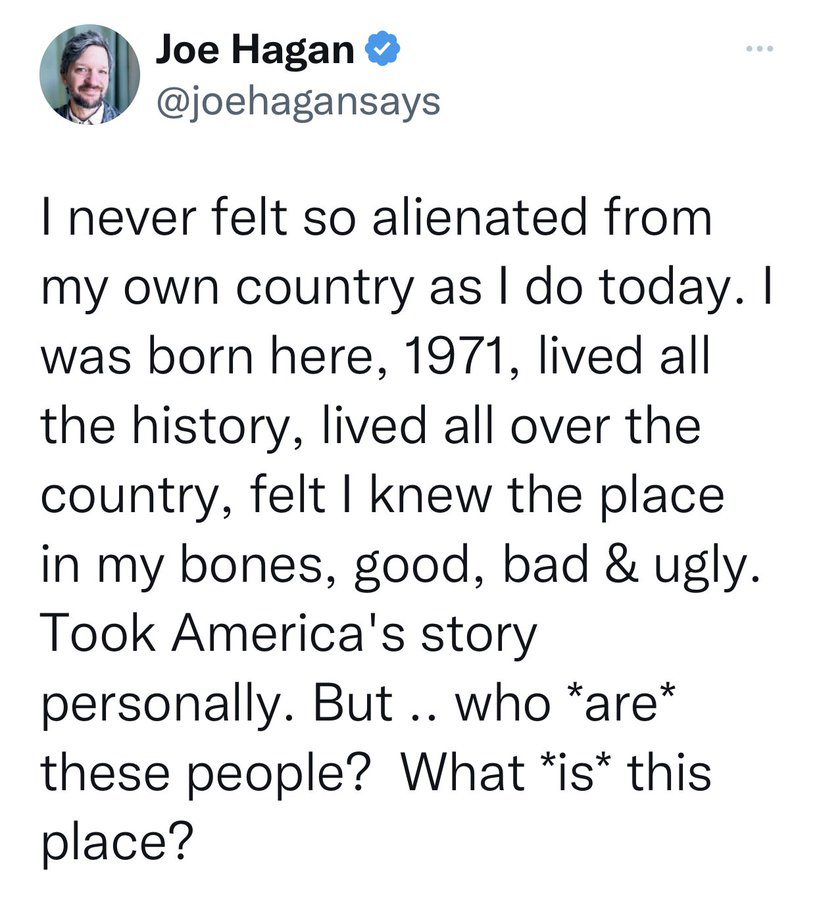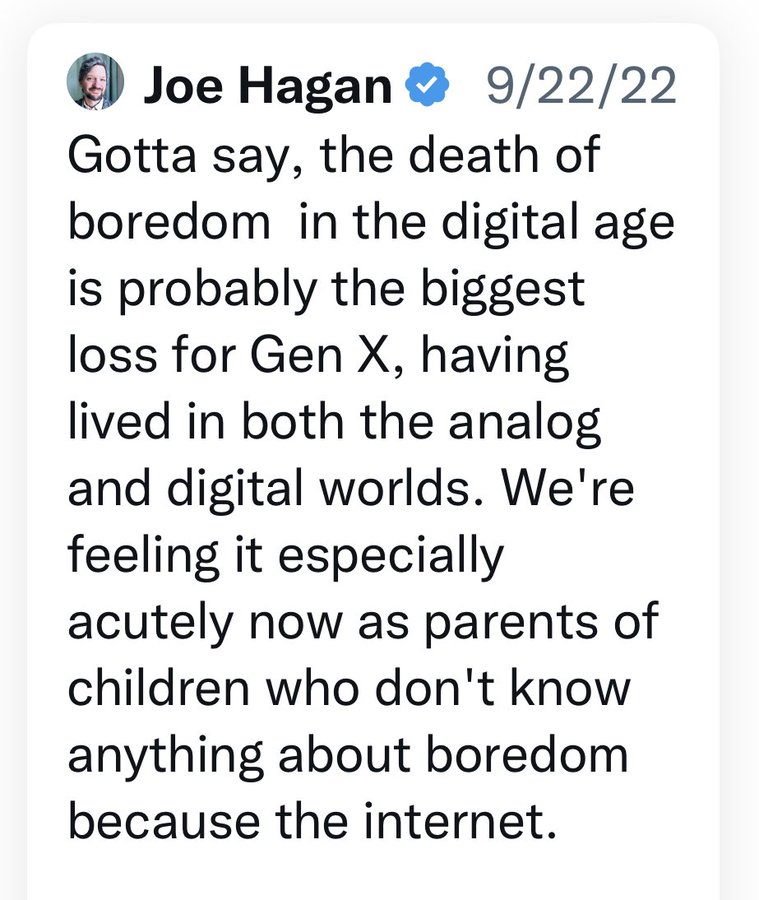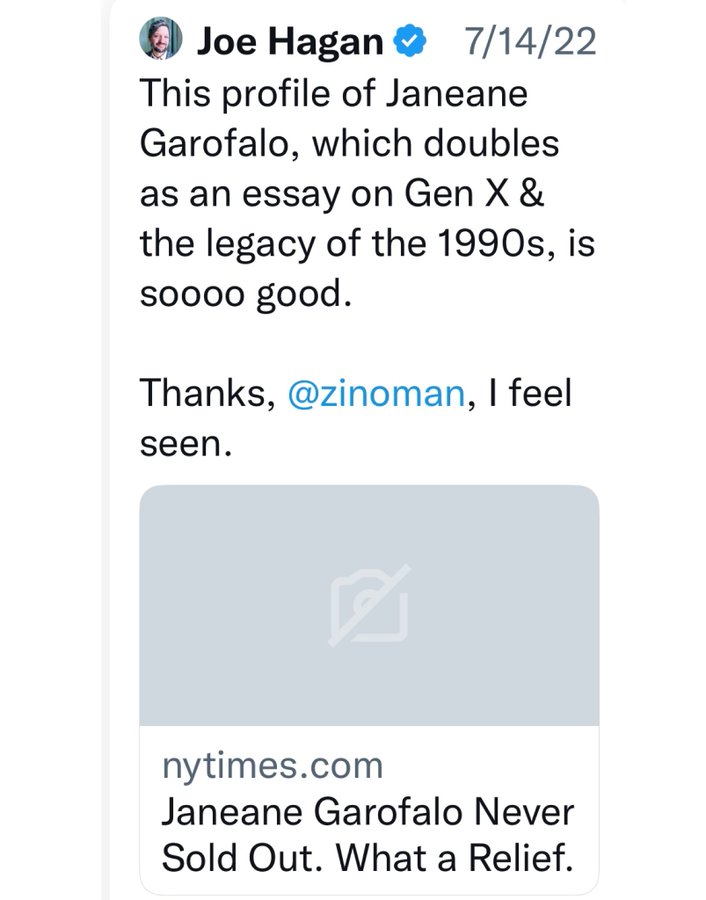
Joe Hagan on How the Death of Boredom Is the Biggest Loss of Our Generation
This Week on Twitterverse, a Show About Tweets and the Writers Who Send Them
You’re tuning into another dimension. A dimension of tweets and the writers who send them. You have just now entered the Twitterverse. Each week, Gabe Hudson welcomes one of his favorite writers and pulls four of their tweets. The guest reads one of those tweets out loud. Then Gabe and the guest use that tweet as an entry point into a conversation designed to illuminate the writer’s heart and mind. Rinse, repeat. Presented by Literary Hub and Best Case Studios.
*
Joe Hagan always knew he wanted to write but wasn’t sure what kind: fiction, poetry, or journalism? Well, in addition to being the author of the culture defining book Sticky Fingers: The Life and Times of Jann Wenner and Rolling Stone Magazine, Joe ended up becoming a capital m major journalist who has written in depth reportage on some of the most significant people and entities of our time: Hillary Clinton, The Bush family, Henry Kissinger, Goldman Sachs, The New York Times, and Twitter.
But Joe also has the heart and sensibility of a poet. And from Joe’s low key but hilarious way of describing his life adventures, what emerges is the portrait of a deeply sincere and very smart writer with a huge heart. A writer who seemingly can’t help but keep falling in love with the world. Joe and Gabe discuss their early rambling days, their love of the band Pavement, and how when Joe first moved to New York he knew not a soul and arrived with a backpack and a guitar. Joe talks about his early days in NYC and how he met his “Virgil” who took him down into New York’s underground art and film scene.

Joe Hagan: It’s funny that you picked that out because it’s one of the truly spontaneous things that just bonked. It popped into my head. I chuckled, I typed, I tweeted. And, you know, it’s funny. It wasn’t until I tweeted it that I even remembered that it was from Welcome Back, Kotter. And I was surprised. You know, you put all this stuff about, like, I have very strong opinions about Donald Trump, you know what I mean? And then you put “up your nose with the rubber hose” out there, and people go hog wild. It’s really kind of touching. You know, nostalgia is operating differently for us because we were analog, pre-internet.
This subject has been on my mind a lot this summer. I’ve been tweeting about it a lot. I had my own podcast about Generation X, as you know, because I was having that experience this weekend in a kind of epic way at my inevitable arrival at the Pavement show. There were four of them in Brooklyn this weekend. They were really like a homecoming. They were some kind of weird high school reunion. Like, I knew I would see people that I knew and that I hadn’t seen in years, and I did. Everybody that I was with felt super emotional about it. And just to put a fine point on it, you know, as Gen Xers, we always sort of were like, gag me with a spoon about boomer nostalgia because they just shoved it down our throat. We are so not ever going to do that, you know, fuck that. Kind of like nostalgic corporate garbage.
Here I was this weekend, kind of geeking out a little bit of it, and it did feel good. But of course, we’re not making everybody swallow it. It was just our own little private affair. One of the things is their lyrics are a little bit indigestible to the outside world on purpose. It was a little bit … of a reaction against selling out against corporate stuff and trying to re-carve out an authentic rock and roll for the next generation that they could get behind. You know, when they broke up, it was ’99, late nineties, and I actually wrote a big piece about it in the New York Times. It was maybe the first or second thing I ever published of that magnitude.
As we were growing up, you know, the band broke up. We moved on into our careers, in our lives. Big events like 9/11 happened. And I remember, and this is a bit of a confession, is that for 20 years, I couldn’t even listen to Pavement. I couldn’t listen to any of that music. I didn’t like even looking back on that time. It began to feel decadent and self-involved and we weren’t getting it. I couldn’t see what was good about the time that we grew up because we had to adapt to a new reality, a digital reality. As Patton Oswald said, the sort of 24/7 grind mentality of our digital culture, which you saw only recently, and I’m talking about this summer and maybe this year, that I’ve started to look back on that time with a real fondness and seen the virtue of it.
*

Gabe Hudson: You sound like a Gen-X Studs Terkel there. And I mean that in a complimentary fashion. I love Studs Terkel.
Joe Hagan: Me, too. Yeah, I love him. Working is one of my favorite books. It was the Barack Obama and Mitt Romney election 2012. So this is seven years ago. A friend of mine, a great photographer named Tim Davis, we were talking about how I’m so tired of looking at America through the prism of politics. It’s so boring. It’s so, you know, binary and it goes the same place again and again and again. And we’re like, how can we tell what’s actually going on in this country and what it looks and feels like and what’s the texture of it, you know? And I said, Well, why don’t we do this thing where we go out in America in the old fashioned Walker Evans/James Agee kind of way, and I’ll interview people and you take their portraits and we’ll do a thing. So we did a bunch and we really liked how they came out. We were interviewing some Jamaican guys that ran a junkyard near Hudson. We interviewed a gay couple in Kingston who were living in a kind of rough neighborhood, but they had bought this house. Everywhere we went, we were getting wild stories and we thought, Well, there’s a lot and this is rich and we should be able to do it. Studs Terkel did it, which is just interview anybody you know about their lives. And we know we would sort of circle around the idea of the American dream. Like, what is it? Do you feel like there’s potential in this country? Do you feel like there’s potential in your life? Does America even exist anymore?
*

Gabe Hudson: What are some times in your life where you were bored that you can recall it was to your advantage?
Joe Hagan: Well, every summer of my teenage life, when I had a car later when I was 16 or 17, then I could drive to the beach or drive wherever. But yeah, my teenage hood was spent like, okay, I’ll see you later. You’d go out and you’d find things to do. You would go to a construction site and ride around with your friends. We used to go around. This is when we’re about nine or ten years old. We go around in parking lots and we’d walk around looking for Cadillacs. And the Cadillac cars in the seventies had chrome caps on the air valves, and we would go around and steal them and just fill shoeboxes with little chrome caps off the wheels. I’m not saying that this is some kind of elevated thing that we were doing, but it did get us out of the house and got us into all these misadventures. And it was just one of the many things we were doing that was harmless. Ultimately harmless. We would shine them and we would count them out and trade them and stuff, and it was a stupid thing. But in addition to all that, it just led to lots of reading. I mean, I remember reading just entire series in like three days because you just had nothing better to do.
*

Joe Hagan: I was so jealous I didn’t write it. So that’s a feeling you have when you’re a writer.
Gabe Hudson: Sometimes it’s the highest compliment you can give. The highest.
Joe Hagan: I just was like, man, I mean, she’s somebody that just was around in the East Village when I was coming up in the city. She was the real deal. And when I read that profile, it says she doesn’t have a phone. She’s not on Twitter. She’s not on the Internet basically at all. She just kept the Gen-X thing alive well past its expiration date, right to where it becomes almost like an eccentricity. I mean, it is an eccentricity. It’s like, whoa, you’re living in the city, but you’re off grid, you know?
Throughout the years of the Internet age, you have periodically fantasized and people have done this as like an experiment in journalism, like I’m going to go off grid for a month and never check my Internet and see what that’s like. You know, of course it’s fantastic. But then you get curious for a second to see how many tweets you got, and then you go fallen back down the rabbit hole and next thing you know, you’re a crack it.
__________________________________
Episodes of Twitterverse will be available for free on Apple Podcasts, Spotify, or wherever you listen to podcasts.
Joe Hagan has written for New York, Rolling Stone, The Wall Street Journal, and many other publications. He has published long-form profiles and investigative exposés of some of the most significant figures and subjects of our time, including: Hillary Clinton (her first post-Secretary of State interview), Karl Rove, the Bush family, Henry Kissinger, Dan Rather, Goldman Sachs, The New York Times, and Twitter. He lives with his family in Tivoli, New York.
Twitterverse
You're tuning into another dimension. A dimension of tweets and the writers who send them. You have just now entered the Twitterverse. Each week, Gabe welcomes one of his favorite Tweeters and he pulls 4 of their Tweets. The guest reads one of those Tweets out loud. Then Gabe and the guest use that Tweet as an entry point into a conversation designed to illuminate the Tweeter’s heart and mind. Rinse, repeat.



















